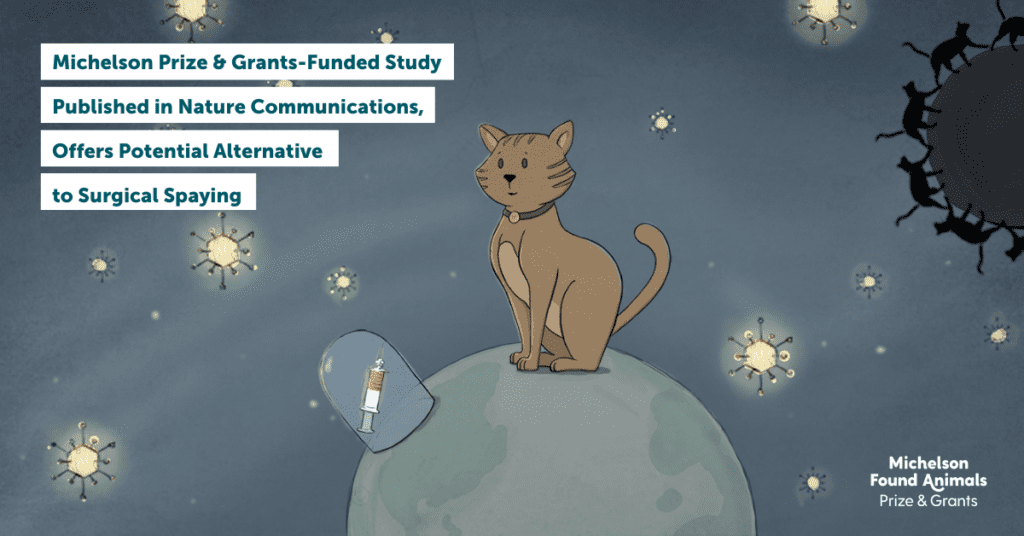Michelson Prize & Grants-Funded Study Published in Nature Communications, Offers Potential Alternative to Surgical Spaying


Gene Therapy Produces Long-term Contraception in Female Domestic Cats
Michelson Prize & Grants, a program of The Michelson Found Animals Foundation, is offering a $25-million prize to scientists to develop a permanent, “single-treatment,” nonsurgical sterilization method for male and female cats and dogs.
Currently, there are no contraceptives capable of producing permanent sterilization in companion animals. For the first time, researchers at Massachusetts General Hospital (MGH) and their collaborators have demonstrated that a single injectable dose of a gene therapy-based treatment can induce long-term contraception in female domestic cats, potentially providing a safe and effective alternative to surgical spaying. The research is published in the latest issue of Nature Communications.
“Although surgical sterilization has been an effective tool for controlling unwanted pregnancies in cats, it is both costly and labor intensive. A solution that only requires a single injection could potentially make a significant impact on the overpopulation of cats. We engineered a viral vector to deliver a feline transgene that increases the amount of a natural hormone to prevent ovulation,” says senior author David Pépin, PhD, Associate Molecular Biologist in Surgery at MGH and Associate Professor of Surgery at Harvard Medical School. “The gene therapy is delivered in a single injection and thus less invasive and more scalable than spaying.”
The team of investigators at MGH, the Center for Conservation and Research of Endangered Wildlife (CREW) at the Cincinnati Zoo and Botanical Garden, and the Horae Gene Therapy Center at the University of Massachusetts Medical School received funding from The Michelson Found Animals Foundation in support of this research.
“A non-surgical sterilant for community and companion animals is long overdue and will transform animal welfare,” said Gary K. Michelson, M.D., founder and co-chair of Michelson Philanthropies and the Michelson Found Animals Foundation. “This breakthrough discovery is a major milestone in our quest to provide pet owners with an alternative to surgical spay and neuter.”



